2021-2022 HBCU C.A.R.E.S. Ambassadors
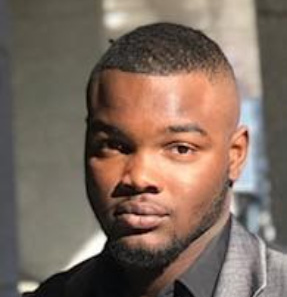
Brandon Adams
Master of Social Work
Alabama State University
Fun facts:
- I was born in East St. Louis, IL.
- My favorite sports team is the Carolina Panthers.
-
I am the second eldest of my mother’s four boys.
Why Behavioral Health?
I have always been inspired to be a service advocate in behavioral health. Social Work is a versatile field, one in which practitioners can work in a variety of professions. Social workers also possess the ability to help people in all forms of life. I am committed to enhancing the lives of individuals and families and I view myself as a man of service due to my willingness to help others. It often feels like the right thing to do.
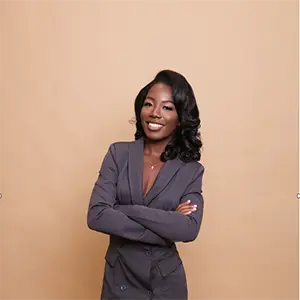

Serena Bradshaw
Doctor of Philosophy in Counseling Psychology
Howard University
Fun facts:
- I studied abroad in London for an entire summer.
- I have a YouTube channel.
- I think brown sugar makes everything better.
Why Behavioral Health?
I chose a career in behavioral health because minority populations and communities are often not afforded options or equal access to resources, which affects their health outcomes. I want to be a part of the change that helps create equitable solutions, provide psychoeducation to individuals and communities, and access resources. I am also interested in the mind, body, soul connection and its effects on health outcomes. It is important to me to help destigmatize the mental health field for minorities and become an active agent of change. Lastly, the behavioral health field has many careers that one can choose from, regardless of their degree, allowing me flexibility and spontaneity; which is important to me.
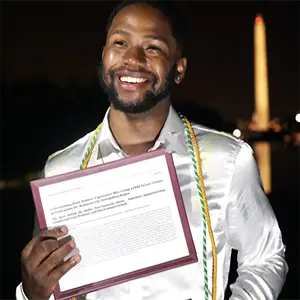

Denzell Brown
Doctor of Philosophy in Counseling Psychology
Howard University
Fun facts:
- I was an All-American Track and Field Sprinter at the age of 13.
- I attempt to meditate once a day.
- I took classes at Howard University during my senior year of high school.
Why Behavioral Health?
As a counseling-scientific practitioner, I am devoted to serving as a behavioral health professional to institute counseling interventions that are tailored to providing marginalized black populations with psychological racial equity. My current research interest is centered on equipping Black mothers who lost a child to gun violence with no-cost virtual therapy sessions, trauma-informed resources, and access to speak with council members.


Meghan Brown
Doctor of Philosophy in Clinical Psychology
Jackson State University
Fun facts:
- My interests and hobbies include fine arts, primarily oil paintings and sculptures, various physical pursuits, such as fitness training and rock-climbing, as well as international travel.
- Through these various endeavors, I have had several life-fulfilling opportunities to work with many youths to contribute to the field of public and mental health.
- Specifically, my international travels have deepened my understanding of multicultural diversity through various lifestyles, beliefs, and backgrounds.
Why Behavioral Health?
I was born and raised in Jackson, Mississippi, in an impoverished community where access to quality health care is limited. There is a limited value placed on public and mental health care; there are also high crime rates, and financial resources are scarce. At an early age, I began observing the conditions of my community while noticing the racial and ethnic disparities of health care and common trends of inadequate health care among the African American population. These conditions only heightened my interest and desire to work to ensure people, particularly individuals in minority populations, would receive access to adequate health care and mental health treatment. I hope to be a part of helping decrease the comorbidity and frequency of cardiovascular diseases. These conditions that have stricken Mississippi continue to be the leading causes of death in the state. My childhood, community outreach experiences, and graduate matriculation have led me to conclude that mental health, like other broader fields of public health, is rooted in a population-based socio-ecological model. When society understands that mental disorders are not the result of moral failings or limited willpower but are legitimate illnesses that are responsive to specific treatments, much of the negative stereotyping may dissipate. I aim to be a catalyst in advocating for mental health treatment in communities of color while normalizing the impairments attributed to mental illness.
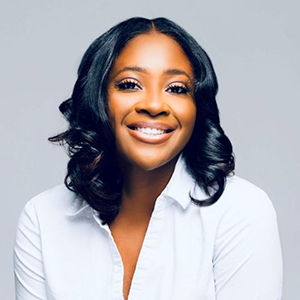

Kortney Clinton
Doctor of Philosophy in Social Work
Clark Atlanta University
Fun facts:
- I love watching documentaries surrounding Black culture.
- I am a seafood lover.
- DIY projects are my favorite.
Why Behavioral Health?
Choosing behavioral health as my career path was necessary for my future work in the Black community. I plan to tackle Black maternal health in the criminal justice system, a population often overlooked. As a social worker, I have continued my career beyond being a clinician and expanded my career scope to policy. Policy drives my work as a clinician, and I would like to bridge the gap. I hope to push for policy reform related to behavioral health, specifically for Black maternal health. Black mothers are important, and they set the foundation for healthy Black children in our communities.
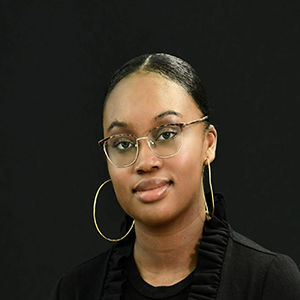

Jessica Collins
Master of Science in Rehabilitation Counseling
University of Maryland Eastern Shore
Fun facts:
- I won every award in a fishing competition at age 12.
- Any activity with water is my favorite thing to do.
- My favorite food is crab legs.
Why Behavioral Health?
I always knew that I wanted to help people, but didn’t realize exactly what I wanted to do until high school and college. I choose to pursue a career in behavioral health because, growing up, I dealt with the stigma and hardships of having a learning disability and anxiety. I wanted to help those just like me that unfortunately did not have the support that I had. As I got older, my concentration shifted to trauma and co-occurring disorders due to the experience I witnessed many family members have. My goal at that point was to learn as much information as I could to help support not only my family but whomever else I could for the rest of my life.
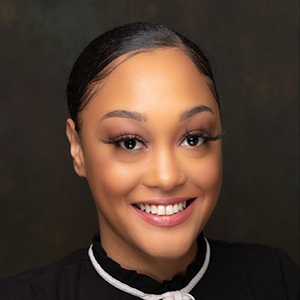

Kaylisa Estes
Master of Social Work
Clark Atlanta University
Fun facts:
- She helped found Kansas City Girls Prep Academy.
- Her favorite scent is Rose.
- She wishes to become a professor one day.
Why Behavioral Health?
Kaylisa chose to pursue a career in behavioral health while studying at the University of Kansas. She found that issues surrounding mental health in Black women to be highly stigmatized and decided to dedicate her life and career to tackling this problem. Kaylisa found her home in learning at Clark Atlanta University and hopes to conduct research that destigmatizes seeking mental health services. Topics of interest to Kaylisa include sexual wellness, anxiety, and depression within Black female populations.
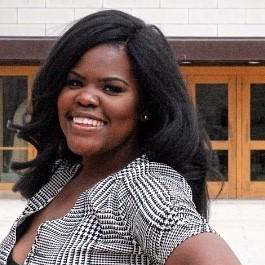

Allyson Graham
Doctor of Philosophy in Rehabilitation Counseling
North Carolina A&T State University
Fun facts:
- My favorite food is macaroni and cheese.
- I’m a Capricorn.
- I go on walks in the park to alleviate stress.
Why Behavioral Health?
Choosing a career in the mental health field allows me to assist in the betterment of people’s well-being and be an agent of change. I believe one’s mental and behavioral health is the catalyst for a lot of their actions. Being in the field allows me to impact individuals and their communities directly and indirectly, as we, helping professionals, hope to create a chain of positivity and growth. I hope to use my career as a form of advocacy and social justice.
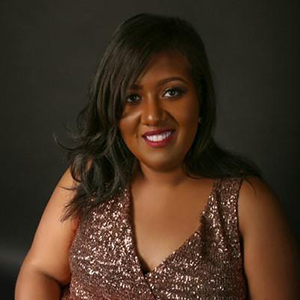

Brittany Greene
Master of Arts in Clinical Mental Health Counseling and School Counseling
North Carolina Central University
- Fun facts:
- I live within walking distance of my mother in the same neighborhood.
- I love to binge-watch hit Netflix and Hulu (as well as any other streaming services) shows in my free time.
- I love all things glitter and sparkles.
Why Behavioral Health?
I chose behavioral health because it has always been a lifelong long career goal of mine due to my invested interest in the mental health field and drive to positively impact mental health. I also chose this field to help raise awareness for mental health, reduce stigma about mental health, and help marginalized populations receive more access and education on the topic of behavioral health. Additionally, I want to be an advocate for individuals living with mental illness and assist them in securing resources and finding hope and support. I was introduced to behavioral health at a young age by my mother and her twin sister who were both psychiatric nurses, so I want to continue my family’s work and impact on the field and continue to reach as many individuals as possible and hopefully improve their quality of life.
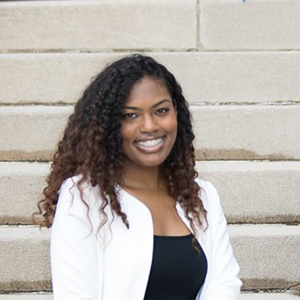

Brittany Hinkle
Doctor of Philosophy in Counseling Psychology
Howard University
Fun Facts:
- As an undergraduate student, I studied abroad in Spain with a host family. I still keep in contact with them.
- I love horses and hope to one day own a ranch.
- I am currently studying to become a yoga instructor.
Why Behavioral Health?
I believe that my purpose is to help in every sense of the word; whether that be through healing, teaching, or sharing my own experiences. Becoming a psychologist allows me to do these things.
Pursuing a career in behavioral health satisfies my personal and professional goals, but it also allows me to fight against the stigma of mental health in the Black community and serve as a model. It is important to recognize mental health as a critical health issue impacting the Black community. My involvement, therefore, will allow me to communicate the importance of mental health, empower others, and advocate for those that often do not have voices.
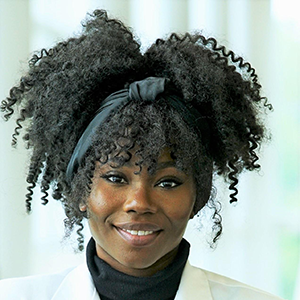

Oganna Ifeadike
Psychiatry Residency Program
Meharry Medical College
Fun facts:
- I have a 6 year old Siberian Husky, Merlin, who has been with me since he was 8 weeks old.
- I love to cook. I would often bake or cook large meals and bring them to work for my co-workers.
- I LOVE popcorn!!! Especially kettle corn.
Why Behavioral Health?
Being a part of a culture that does not prioritize Mental Health, when I had my struggles, I was unsure of how to cope, except to do what I had been taught: “push through” and “be strong”. This narrative that is reflected in the culture of most Black and Brown communities, elects that we ignore our mental health until it becomes detrimental. I decided to become a Psychiatrist to help change this narrative and ultimately help Black and Brown communities be able to achieve wellness holistically.
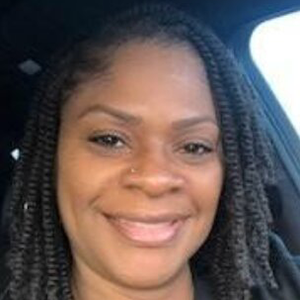

Chiquita Jones
Master of Science in Nursing
Prairie View A&M University
Fun facts:
- I am an Army Veteran.
- Baking calms me.
- I have 3 adult daughters currently attending college.
Why Behavioral Health?
In my 20-year career as a Registered Nurse, my experience includes Critical Care, General Medicine, Outpatient Clinics, Solid Organ Transplant and Patient Education. Behavioral Health is a facet of healthcare that spans each of these specialties. Holistic Care is treating the “Whole” person, physical and mental. As I enhance my understanding of behavior, I sharpen my effectiveness as a nurse and educator.
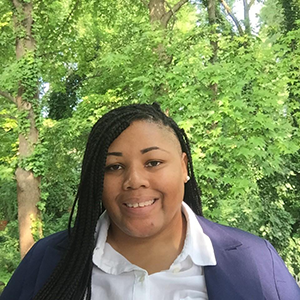

Angelina McNeill
Doctor of Philosophy in Social Work
Howard University
Fun facts:
- I love to drown my ears in music!
- The Black Panther movie is my kryptonite!
- I enjoy hiking and yoga for self-care!
Why Behavioral Health?
My professional career in mental health came from personal experiences within the system. This led me to analyze the disadvantages that Black people face within mental health. I have been able to tie my two passions of mental health and criminal justice reform to advocate and reduce harm to those impacted by it. I hope to be more involved in my community and to continue to be there for those needing advocacy as I pursue a Ph.D. in Social Work at Howard University.
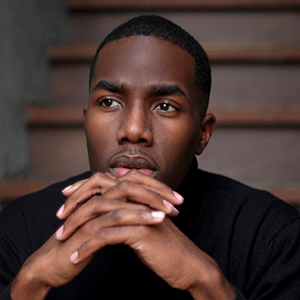

Rayford Mullins Sr.
Master of Science in Counseling Psychology
Alabama A&M University
Fun facts:
- I am a Youth Minister who enjoys and advocates for children being seen as emotional, spiritual, and capable human beings.
- I am a Husband, Father of Two, and a Behavioral Therapist.
- I enjoy traveling and seeing new places, people, and adventures.
Why Behavioral Health?
I chose to pursue an academic study in behavioral health because I wanted to know the importance of how we think, behave, and react to life changes from both our past and present. I wanted to mainly start my focus on the youth since they are growing up to be the next generation among us all. After obtaining my master’s degree in Counseling Psychology, I plan to open up my very own Youth Center for children who seem like they are lost, different, or unheard. I will advocate for their growth, understanding, and self-identity.
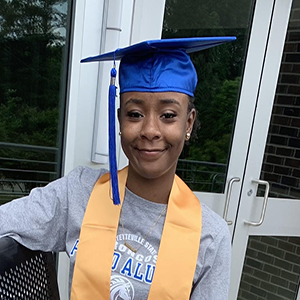

Saniyyah Notis-McAllister
Master of Social Work
Fayetteville State University
Fun facts:
- I am a very adventurous person.
- I enjoy journaling and traveling to new places.
- My favorite color is royal blue.
Why Behavioral Health?
My passion for behavioral health stems from witnessing the stigma that mental health has in marginalized populations. People with mental health issues are often stereotyped, which prevents them from seeking treatment. Stereotypes placed on individuals with mental health issues often cause both internal & external stigma for this population. I have always had a passion for helping people, and I want to work with marginalized people.
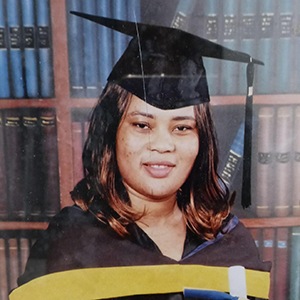

Maryrose Oguezuonu
Doctor of Nursing Practice
Coppin State University
Fun facts:
- I love reading and writing.
- I love coaching soccer and basketball.
- I love going to daily mass/prayer.
Why Behavioral Health?
Maryrose is a lifetime learner who likes to learn new information and up-to-date information. 21st-century leadership requires that you teach by showing an example especially in this era of evidence-based practice. Evidence-based information and practice results in safe and quality care to patients, families, and communities. A career in behavioral health is a way to build resilience and will be an instrument for people affected with disorders as I will reach out to them and encourage them in their challenges. This is also a way for me to give back to the world that supported my academic pursuit and training to this level. I want to be among those that make a difference in the lives of people going through their challenges.
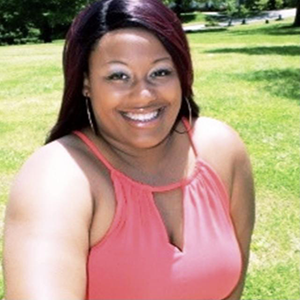

Leshaé Philyaw
Master of Arts in Clinical Mental Health Counseling
Clark Atlanta University
Fun facts:
- I share my birthday with my mommy.
- I own 4 pets.
- I am short in stature but tall in personality!
Why Behavioral Health?
I chose to pursue a career in behavioral health because of my younger sister. She was diagnosed at age 2 with Autism Spectrum Disorder (ASD). From that point forward, my family has been true advocates for ASD and bringing about awareness to the fact that it is truly a spectrum where everyone who has a diagnosis is completely different aside from the attributes of the disorder itself. I wanted to continue to work with this population without being in a classroom environment!
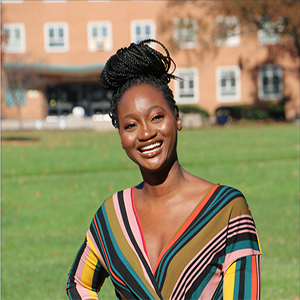

Simone Akila Ruskamp
Master of Social Work
Howard University
Fun facts:
- I named my daughter after Zora Neale Hurston.
- I co-founded two impactful grassroots organizations: Juneteenth Santa Barbara and Healing Justice SB.
- I am currently growing bell peppers and tomatoes in my garden.
Why Behavioral Health?
I came to behavioral health as an activist and mother, committed to learning the ways that Black people have healed themselves and built community. As a therapist in training, I was drawn to social work because it was one of the few disciplines that diagnosed systems and not just the people navigating them. I believe my community can heal, and upon graduating I hope to integrate my social work practice with my organizing experience to support and study ways to sustain movements and grassroots organizers.
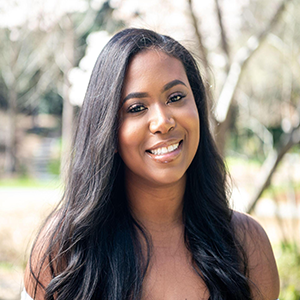

Tierra Simmons
Psychiatry & Behavioral Sciences Residency Program
Morehouse School of Medicine
Fun Facts:
- I am a member of Alpha Kappa Alpha Sorority, Inc.
- I love to travel and have been to 8 countries and counting.
- I have a furbaby (Maltipoo) named Ava.
Why Behavioral Health?
Psychiatry requires advocacy for populations that society often overlooks. This revealed to me my purpose within the medical field: to serve as a physician who can provide a continuum of mental healthcare across generations, ethnicities, and socio-economic backgrounds. My goal is to serve as a mentor and advocate for marginalized populations. I hope to advocate for those who face mental healthcare inequities and populations that have cultural stigma regarding mental healthcare in an effort to end mental healthcare disparities.


Tisa Thomas
Doctor of Medicine Program
Howard University
Fun facts:
- I have lived in and attended school in three different countries.
- I had a minor in popular music studies in my undergraduate studies.
- I sang in a choir during my undergraduate studies.
Why Behavioral Health?
My interest in behavioral health stems from prior experiences in harm reduction and working on initiatives for individuals with substance use disorder. Through these experiences, I witnessed the importance of collaboration in addressing behavioral health as public health experts, physicians, community leaders, and many others coordinated efforts to improve access to health care and social services. I hope to integrate this ethos of collaboration (with both colleagues and patients) in developing programs that offer a compassionate and destigmatizing approach to behavioral health and well-being.
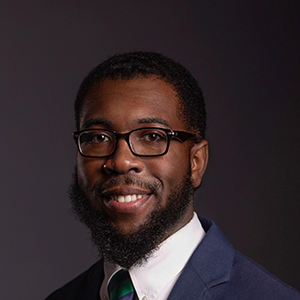

Tommy Walker
Master of Arts in School Counseling
Clark Atlanta University
Fun facts:
1. I am a member of Alpha Phi Alpha Fraternity, INC.
2. I will also be a two-time HBCU Graduate.
3. My hobbies include singing, painting, and listening to live jazz bands.
Why Behavioral Health?
I chose to pursue a career in behavioral health to become an advocate for students and people of color that shy away from getting professional health due to a lack of resources, miseducation, and/or comfort level with a practitioner. As an advocate, my responsibility is to equip families with resources to change their generational narrative. I seek to change the negative perception of therapeutic interventions by educating families on the benefits and success testimonies others have had as a result of seeking help. Lastly, I aim to diversify the profession so all families feel comfortable sharing their experiences.
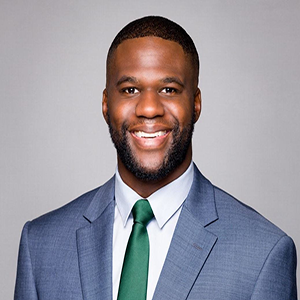

Chidi Wamuo
Psychiatry & Behavioral Sciences Residency Program
Morehouse School of Medicine
Fun facts:
- My mother is American, born and raised in Philadelphia, Pennsylvania. My father immigrated to the US from Nigeria.
- President Barack Obama was our Morehouse College commencement speaker in 2013.
- Chidi means “God Exists”.
Why Behavioral Health?
I chose psychiatry because it integrates biology, psychology, and sociology. I desired a holistic approach to individualized patient care, specifically targeting minority populations. I plan to pursue a fellowship in Child & Adolescent Psychiatry in order to support youth and help prevent impairing mental illness.
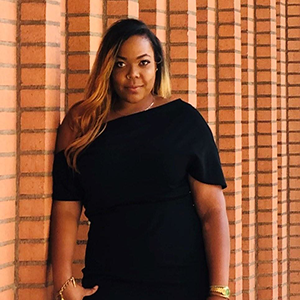

Amber Williams
Doctor of Philosophy in Counseling Psychology
Howard University
Fun Facts
- I have the best mother in the world.
- My favorite color is green.
- My alternate career would be interior design.
Why Behavioral Health?
I initially pursued a career in behavioral health because of the personal value I placed on the various psychological processes that contribute to the differential experiences of people. The more I learned about the social, psychological, and biological components of behavior the more my passion for the subject increased. My goals for working in the field include reducing the stigma around mental health treatment and promoting optimized psychological wellness within the Black population.
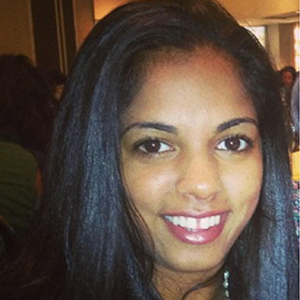

Tyreeka Williams
Doctor of Philosophy in Rehabilitation Psychology
North Carolina A&T University
Fun facts:
- I am a newlywed and we are expecting our first baby girl.
- I have been to Las Vegas over 15 times (I have family that lives there).
- I enjoy hot yoga and brunches for self-care.
Why Behavioral Health?
Choosing a career in behavioral health was always my intention; however, my pathway to my passion was far from linear. I enjoyed studying psychology, learning about behavior and the brain, and the concept of helping people overcome mental health battles. However, I wasn’t sure what my specific niche was in the field. After years of exploration, multiple education paths, and a switch of career paths, I found school counseling to be the field that truly resonates with me, my personality, and my love for social, academic, and career development. I am thrilled to express my love and passion for the field and to contribute to the lives of others who seek to have a fruitful career, fulfilling their purpose in behavioral health.



